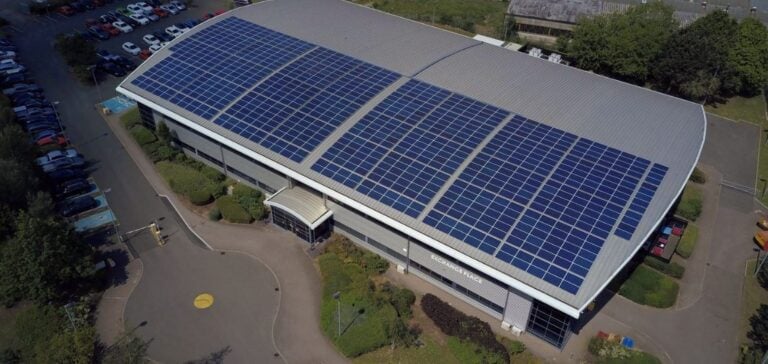Bluefield Solar Income Fund Limited, a key player in renewable energy in the UK, has completed the sale of 50% of its 112 MW portfolio of operational solar assets to GLIL Infrastructure, an investment entity made up of UK pension funds.
The transaction, valued at around £70 million, takes place against a backdrop of increased pressure on financial markets and the need for long-term profitability for institutional investors.
This strategic partnership enables Bluefield Solar to meet debt management requirements while maintaining growth prospects in the renewable energies sector.
The proceeds from the sale will be used primarily to reduce the balance of its revolving credit facility (RCF) from £184 million to £134 million, and to fund future development projects.
The sale also improves the company’s financial leverage, a key indicator monitored by analysts and shareholders, lowering the debt ratio to around 43% of gross asset value (GAV).
A strategic repositioning to meet the challenges of the sector
The UK renewable energy market is undergoing significant change, with increasing competitive pressures and stricter regulations on energy investment.
The partnership between Bluefield Solar and GLIL is part of the restructuring necessary to secure returns and diversify funding sources.
GLIL, which brings together pension funds such as Local Pensions Partnership Investments and West Yorkshire Pension Fund, aims to broaden its investments in essential infrastructure, particularly renewable energies, to ensure stable long-term returns.
Phase Three of the partnership between Bluefield Solar and GLIL will invest in around 10% of the company’s development portfolio.
This phase includes the connection of around 17 MW of solar assets to the grid within the next twelve months, through the Auction Round 4 Contracts for Difference (CfD).
The aim of this phase is to diversify assets while optimizing financial resources, a strategic challenge at a time of rising financing costs.
Opportunities and risks in an energy environment in transition
The UK’s energy transition involves a shift in investment towards low-carbon power generation projects.
Recent regulatory changes, as well as the focus on energy security, have created both opportunities and risks for investors.
The repositioning of Bluefield Solar, with a residual stake of 25% in the portfolios combined with GLIL, demonstrates prudent management in the face of these challenges.
At the same time, the earlier acquisition of the Lightsourcebp Portfolio, in which Bluefield Solar holds a 9% stake, demonstrates a strategy of diversification and yield optimization.
However, the increased use of debt to finance growth raises questions about medium-term financial risk management, particularly with interest rates likely to remain high.
Yield prospects and managing investor expectations
Bluefield Solar is maintaining an annual dividend forecast of 8.80 pence per share for the year ending June 30, 2024, a slight increase on the previous year’s 8.60 pence.
This maintenance of dividends, despite the reduction in assets, is intended to reassure investors of the strength of cash flow.
This decision is in line with the company’s disciplined payout policy, which is essential to retain a base of institutional investors looking for regular income in a volatile sector.
The partnership with GLIL and the sale of assets illustrate how Bluefield Solar is readjusting its strategy in the face of a changing market, marked by strong competition and profitability imperatives.
For fund managers and analysts, the key lies in the company’s ability to navigate these dynamics while capitalizing on targeted growth opportunities.






















